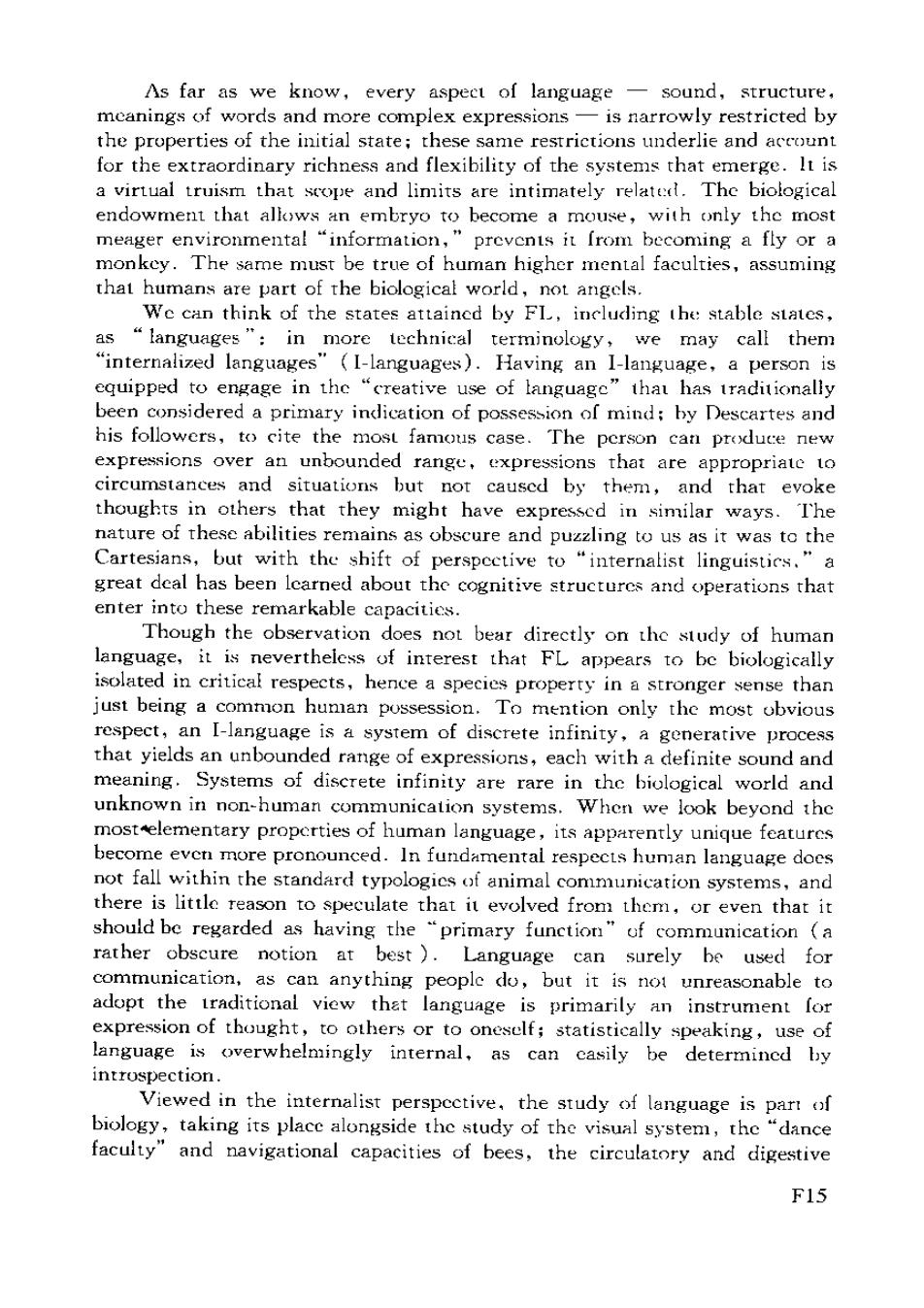正在加载图片...

As far as we know,every aspect of language -sound,structure, meanings of words and more complex expressions-is narrowly restricted by the properties of the initial state;these same restrictions underlie and account for the extraordinary richness and flexibility of the systems that emerge.It is a virtual truism that scope and limits are intimately related.The biological endowment that allows an embryo to become a mouse,with only the most meager environmental "information,"prevents it from becoming a fly or a monkey.The same must be true of human higher mental faculties,assuming that humans are part of the biological world,not angels. We can think of the states attained by FL,including the stable states, as "languages":in more technical terminology,we may call them "internalized languages"(I-languages).Having an I-language,a person is equipped to engage in the "creative use of language"that has traditionally been considered a primary indication of possession of mind;by Descartes and his followers,to cite the most famous case.The person can produce new expressions over an unbounded range,expressions that are appropriatc to circumstances and situations but not caused by them,and that evoke thoughts in others that they might have expressed in similar ways.The nature of these abilities remains as obscure and puzzling to us as it was to the Cartesians,but with the shift of perspcctive to "internalist linguistics."a great deal has been lcarned about the cognitive structurcs and operations that enter into these remarkable capacities. Though the observation does not bear directly on the study of human language,it is nevertheless of interest that FL appears to be biologically isolated in critical respects,hence a species property in a stronger sense than just being a common human possession.To mention only the most obvious respect,an I-language is a system of discrete infinity,a generative process that yields an unbounded range of expressions,each with a definite sound and meaning.Systems of discrete infinity are rare in the biological world and unknown in non-human communicalion systems.When we look beyond the most elementary properties of human language,its apparently unique features become even more pronounced.In fundamental respects human language does not fall within the standard typologics of animal communication systems,and there is little reason to speculate that it evolved from them,or even that it should be regarded as having the "primary function"of communication (a rather obscure notion at best )Language can surely be used for communication,as can anything people do,but it is not unreasonable to adopt the traditional view that language is primarily an instrument for expression of thought,to others or to oneself;statistically speaking,use of language is overwhelmingly internal,as can casily be determined by introspection. Viewed in the internalist perspcctive,the study of language is part of biology,taking its place alongside the study of the visual system,the "dance faculty"and navigational capacities of bees,the circulatory and digestive F15